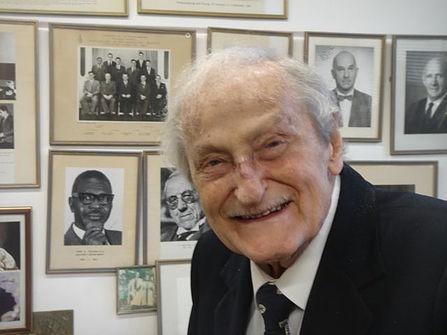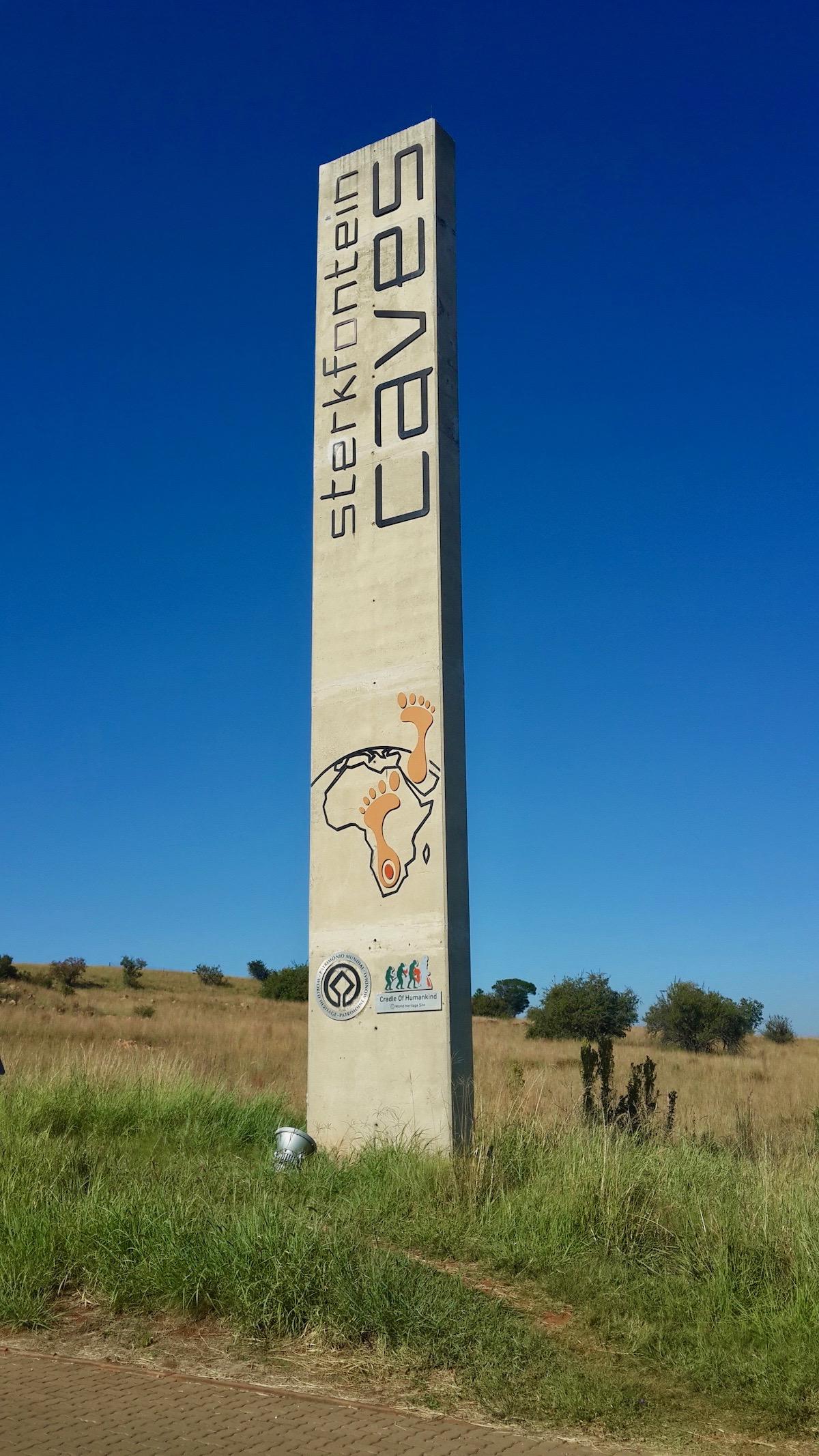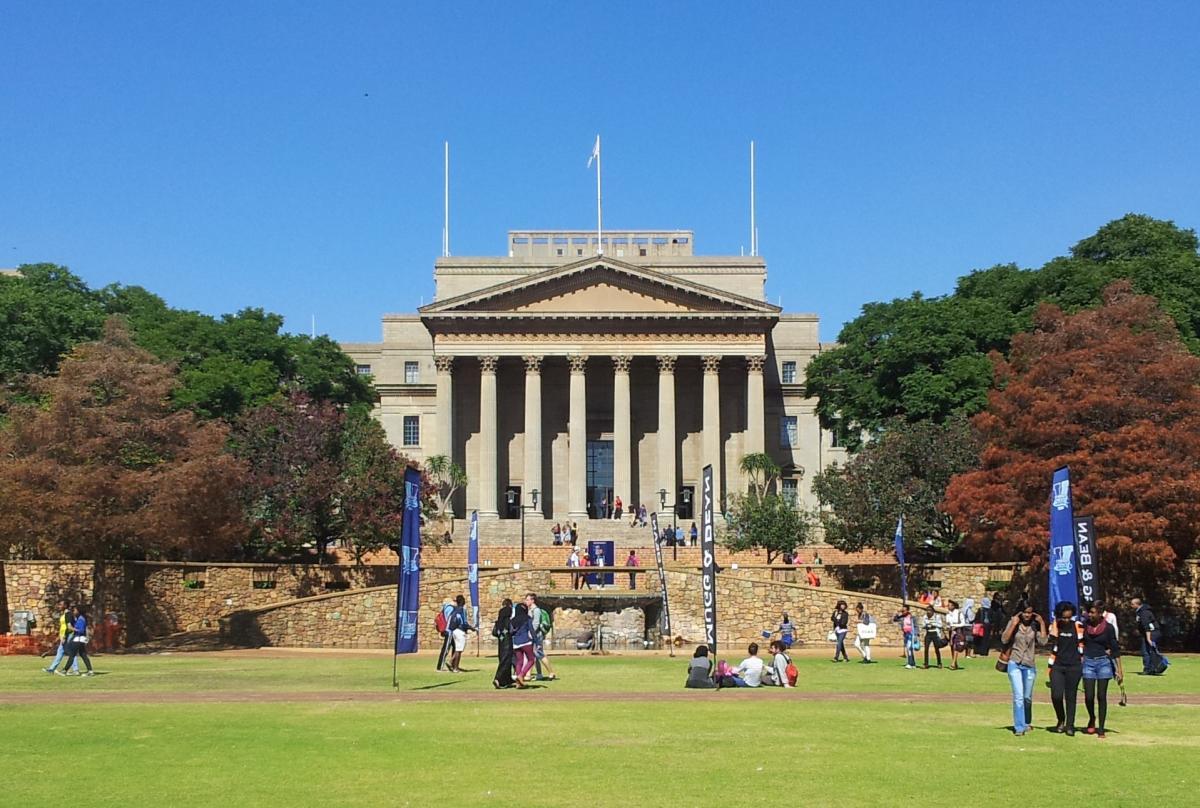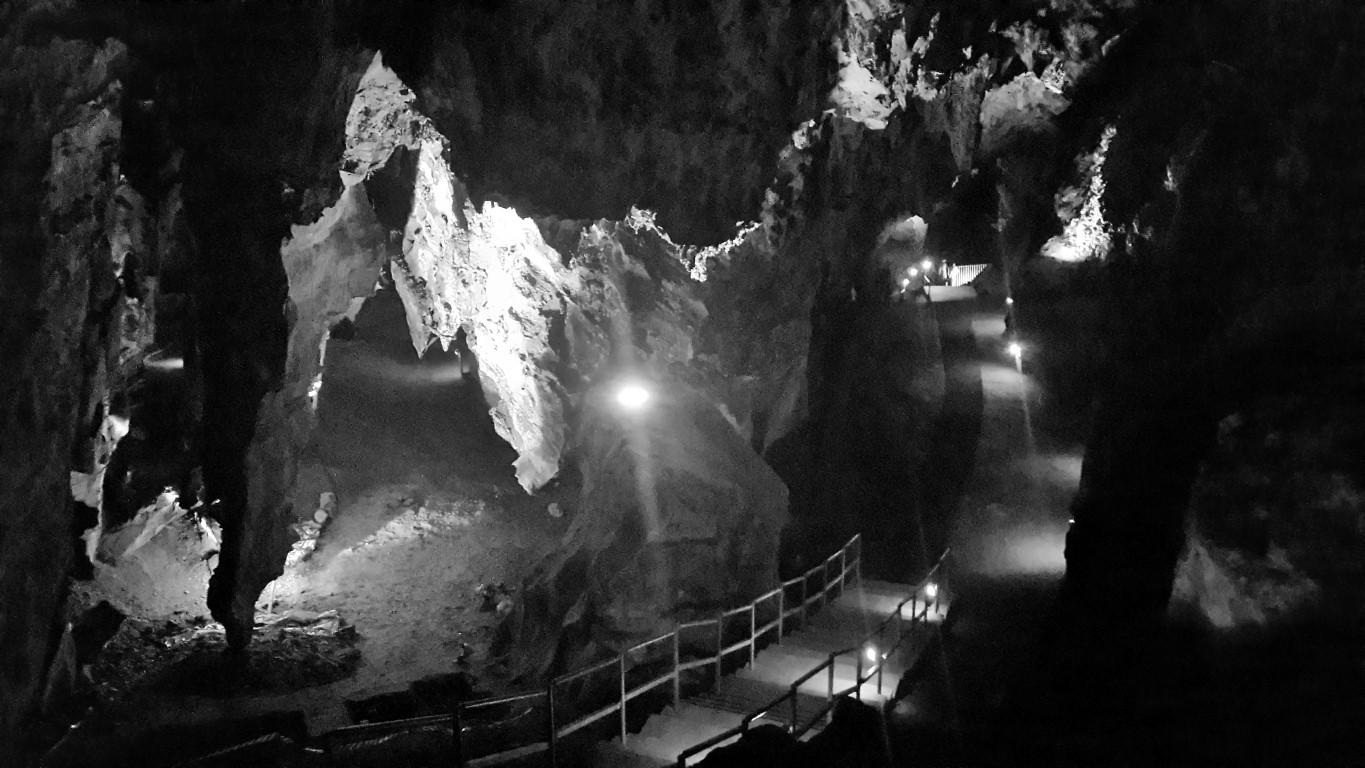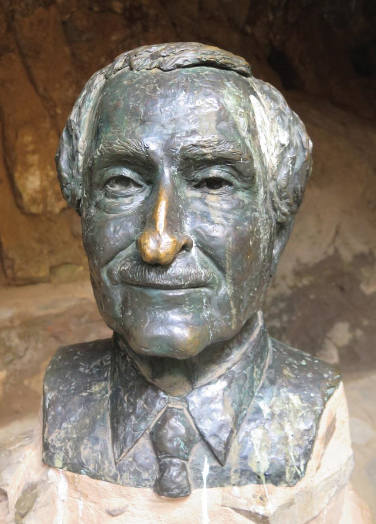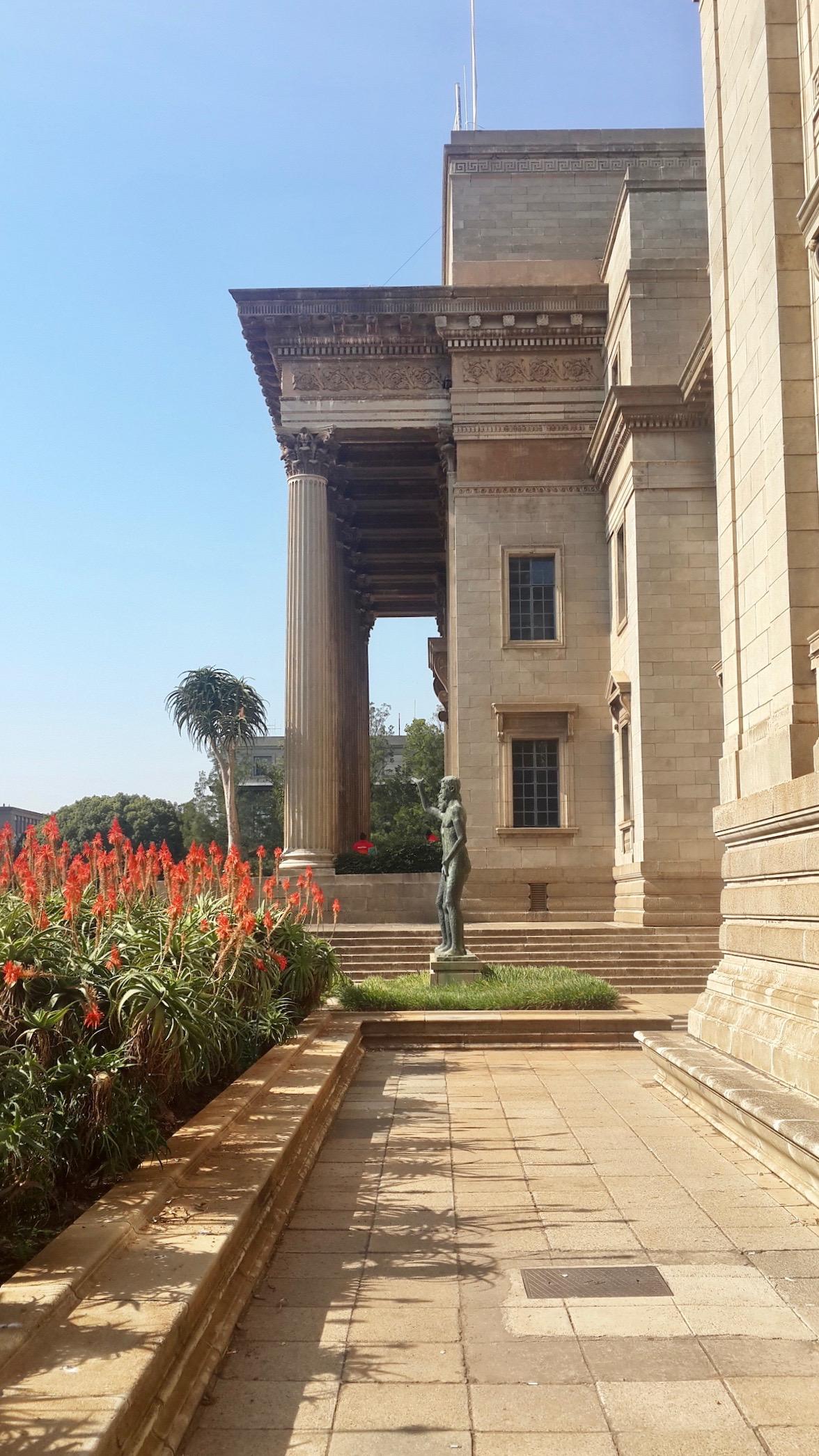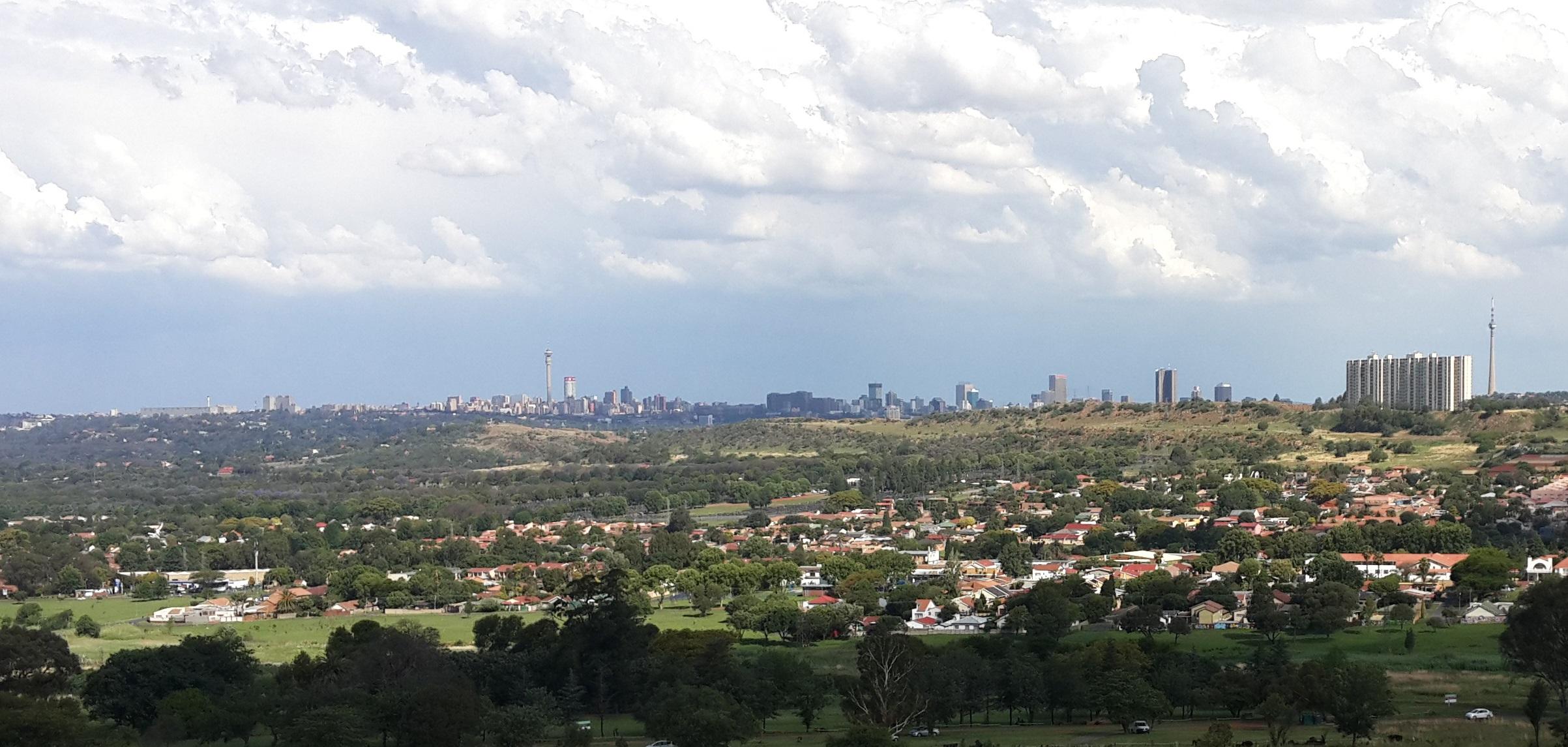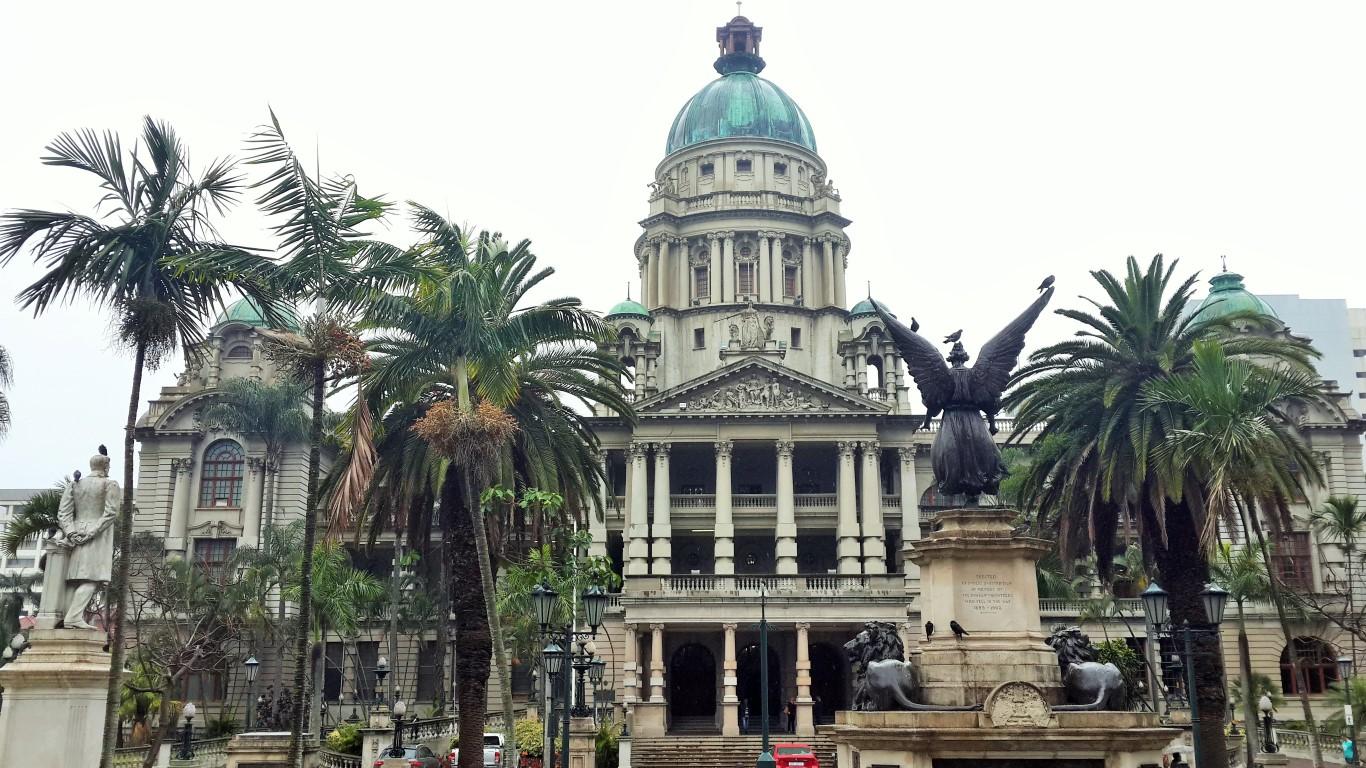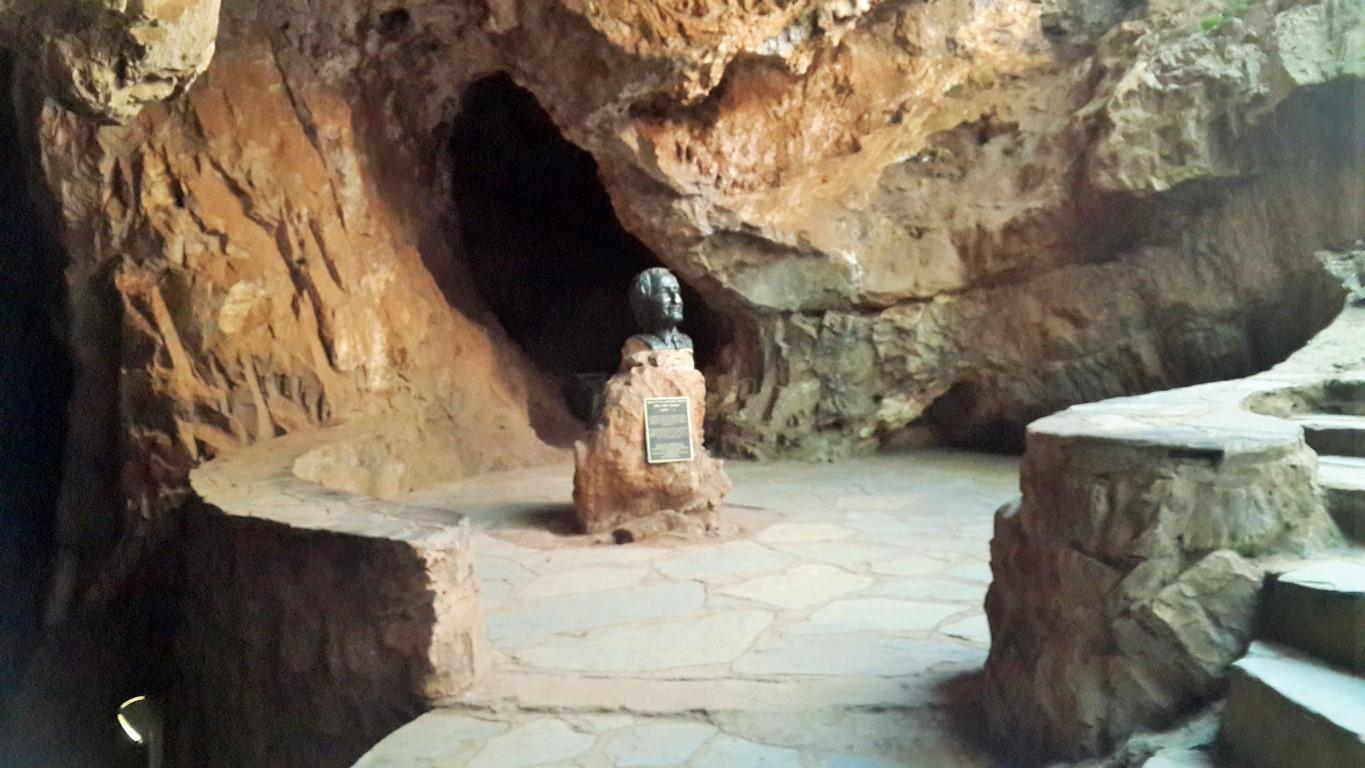
Disclaimer: Any views expressed by individuals and organisations are their own and do not in any way represent the views of The Heritage Portal. If you find any mistakes or historical inaccuracies, please contact the editor.
Phillip Tobias passed away in 2012 aged 87. Lucille Davie was lucky enough to sit down with him in 2009 and chat about his remarkable life. Below is an article she wrote after the in-depth interview. It was originally published on the City of Joburg's website on 19 November 2009. Click here to view more of Davie's work. The image above shows the Tobias bust at the Sterkfontein Caves.
What does Phillip Tobias daydream about, I ask? About things he would still like to do. But at 84, it would be unrealistic, he says.
“I suppose when I think back over my own past and my family, my regret is that I had never married and had children because I used to idolise the very idea of the family,” he says.
But then he has 10 000 children, “bright, eager-eyed young students” who he has taught over almost 50 years at Wits.
“In a very real sense I have passed on my legacy to them, not biologically, not by my DNA, but as tutor, mentor, exemplar and friend,” he smiles gently.
Tobias, professor emeritus of anatomy and human biology at Wits University, respected palaeontologist, and one of South Africa’s most distinguished scientists, has lots of good memories to daydream over.
“I like to think that I have had a moderately good impact on some of them [his students], and bless them, they’re always telling me this when I meet them in Edmonton in Canada, Sydney, Nairobi, Hong Kong, New York and Cambridge.”
Tobias has an office tucked into the corner of the second floor of the Wits Medical School in Parktown. It’s a comfortable space, packed with interesting-looking books; artefacts like imprints of feet, a reference to the discovery of Little Foot at the Sterkfontein Caves, where Tobias has worked since 1945; and dozens of pictures of fellow scientists and friends, as well as framed certificates and numerous awards from around the world.
Awards range from the Order of Meritorious Service (gold class) and the Order of the Southern Cross of South Africa, to the Fellow of the Royal Society of London and the Charles Darwin Lifetime Achievement Award. The City of Johannesburg has awarded him the Walter Sisulu Special Contribution Award.
Tobias, born in Durban 1925, is acknowledged worldwide as an expert in anatomy, human biology and evolution, and the analysis of human fossils. He has received some 18 honorary degrees from across the globe.
Phillip Tobias (Lucille Davie)
Love of people
He says that what makes him tick is his love of people, his love of humanity. “I was one of those strange professors who loved his students. By being available to them at all times to help them with their problems and with constructive, creative advice and trying to widen their horizons.”
Every year he used to take his students on a picnic to the Sterkfontein Caves.
Grand pillar welcoming visitors to the Sterkfontein Caves (The Heritage Portal)
“I was never content that students should learn only cadaver anatomy but ran a course on living anatomy in which they studied their own bodies, stripped down to bathing trunks and bikinis.”
He explains that the cadaver had to be brought to life because their patients were live people. “Living anatomy was a step between cadaver and patient.”
Tobias reaches inside his desk drawer and pulls out a Lindt dark chocolate, his favourite, he says, and offers me a piece. We share his chocolate companionably.
His PA Felicity Krowitz says that he still sees students who ask for his advice. He is supervisor to two PhD students.
“He goes out of his way to assist anyone with anything.”
He comes into his office most days, says Krowitz, and spends most of the day seeing visitors from all over the world. When not seeing people, he opens mail and answers emails, or writes speeches that he continues to deliver in Joburg, or around the country. He is often asked to write chapters or forewords for books.
While interviewing him, he is concerned about whether I am spelling words correctly, or he inserts commas when giving answers to questions. He apologises, saying it’s an old habit. Krowitz says he edits speeches two or three times, dotting every i and crossing every t.
“But it’s a privilege working with and for him. I learn a new word from him every day,” she says.
“He is so sprightly, so on the ball intellectually, his memory is unbelievable,” she adds. Visitors with whom he studied in the 1950s come to his office, and he remembers their brother and his name.
Although frail but healthy, he still drives himself to work every day.
60 years at Wits
Tobias has been at Wits for over 60 years – he graduated from the university in 1950. He has simultaneously been professor at the university in the fields of anatomy, palaeonanthropology and zoology. He has been dean, emeritus professor, honorary professorial research fellow and director of the Sterkfontein Research Unit.
Robert Sobukwe Block at Wits (The Heritage Portal)
He has published over 1 000 works, including 40 books and monographs and over 90 chapters in books in anatomy and palaeoanthropology and other areas. In 2005 he published the first part of his autobiography, Into the Past, a memoir. It covers the first 40 years of his life. He says that he has written the first eight chapters of the second edition.
He has supervised excavations at Sterkfontein for the past 42 years, since 1966, where over 600 fossil hominids have been recovered.
Sterkfontein Caves (The Heritage Portal)
Bust of Tobias at Sterkfontein (Kathy Munro)
He has done excavations at other major fossil sites like Taung in North West province, Makapansgat in Limpopo, and sites in Tanzania and Kenya.
“Tobias made the Wits’ Department of Anatomy (as it was then called) a major world centre of palaeoanthropological research and teaching. Phillip brought great acclaim not only to the Department, but also to the Faculty of Health Sciences and to his University,” said professor of anatomy in the School of Anatomical Sciences at Wits, Beverley Kramer, at the opening of an exhibition on Tobias at the Adler Museum, in May 2008.
Over the years Tobias has been offered posts around the world, but he has always turned them down, happy to stay at his alma mater, from where he has obtained five degrees.
“Unlike many of his contemporaries who left South Africa in the 1950s, Phillip stayed on and committed himself to maintaining high standards of scholarship and personal integrity during the difficult years,” wrote imminent scientist and Nobel laureate, Sydney Brenner, in the foreword to Tobias’s autobiography.
A humanist
Kramer recalled that Tobias would make a comment on a student, saying something that was always “profound, multifaceted, meaningful, yet Phillip had spent only a few moments with the student”. She puts this down to him being a humanist, who studied generations of students.
“I suppose that one can become a humanist from nurturing and studying the personalities of thousands of young students over the years. But it was more than this in Tobias. I believe that Phillip has a very deep feeling for his fellow man and that this gave him insight into many things others would not be aware of.”
Tobias was opposed to the injustices of apartheid, as a student and as a lecturer at Wits. He was president of the non-racial National Union of South African Students, which rejected segregated education. He participated in protests against the Group Areas Act, the Suppression of Communism Act, the Population Registration Act, and other oppressive laws.
Together with his colleagues, he complained to the South African Medical Council regarding the treatment of Steve Biko, who died in police custody in 1977.
“Tobias has always fought dearly for those things he thought were correct and steadfastly opposed the ideas of the apartheid regime,” said Kramer.
A lifetime spent at Wits University (The Heritage Portal)
21st century challenge
When asked what he considers to be the world’s greatest challenge of the 21st century, Tobias says simply: survival. “That means that we need to use our scientific and other skills to master the challenges to survival that are to a large extent human made.”
He says we have to make our cities into people-friendly places, instead of the emphasis on machines.
“What has happened in the latest phase of human evolution over the last 10 000 years since village and town dwelling were invented is that the city has become the greatest concentrated ecology of humans – roads, bridges, skyscrapers, underpasses, rapid transport: all these have produced very heavy challenges to comfortable human life and even to survival.”
He bemoans the overcrowding, crime, suicides, hijackings and psychoses of the cities, as opposed to life in the countryside.
“If we wish to survive we must learn how to treat the pathology of city life,” he concludes.
We must learn how to treat the pathology of city life (The Heritage Portal)
On holiday
What does he do on holiday? He laughs, and says: “I sleep.” And he reads, mostly fiction.
“I love whodunits, a weakness I share with the late Mary Leakey of east Africa. A well-crafted whodunit is rather like a piece of archaeological or anthropological research.”
What forensic experts do with bodies is pretty much what he does with ancient remains.
“We tried to get those old bones, which may be two, three or four million years before the present, to tell their story. Who were they, what gender, what age, what race or species?”
Tobias’ idea of a good whodunit are those by PD James, Agatha Christie, Ngaio Marsh, Dorothy Allingham and Kathy Reichs.
He also watches TV – he channel hops, stopping where it’s interesting.
He indulges in his love of music, a love that goes back to listening to symphony concerts in the Durban City Hall.
Durban City Hall (The Heritage Portal)
“I love choral music and when I was at Cambridge in 1955 for a year, I used to attend Evensong at King’s College Chapel, especially to hear the superb choir.”
Tobias equates holidays with being at the sea – he goes to the coast at least twice a year. “I suppose nothing is more conducive to my relaxing than the sea, and although I love Johannesburg, its people and its culture, at least once or twice a year I must go down to the sea again.”
He sums it up in a sentence: “People, conversation, chocolates and watching the waves at the seashore.”
I refuse another offer of chocolate, but he pops another piece into his mouth, and chews happily.
“Phillip Tobias is human, a human being, a mensh! Just like all humans, Phillip Tobias experiences deep emotions, engages warmly at every level, exults in his students’ achievements and is diminished by the loss of friends and loved ones. He ages gracefully and with continued panache,” said Kramer.
“Phillip Valentine Tobias is a child of South Africa, and an offspring of this University, but he is really a son of the world,” wrote Constitutional Court judge Edwin Cameron in the foreword to From Tools to Symbols: from Early Hominids to Modern Humans.
I had asked for 15 minutes of his time. One and a half hours later he sees me graciously out of his office.
Lucille Davie has for many years written about Jozi people and places, as well as the city's history and heritage. Take a look at lucilledavie.co.za
Comments will load below. If for any reason none appear click here for some troubleshooting tips. If you would like to post a comment and need instructions click here.

